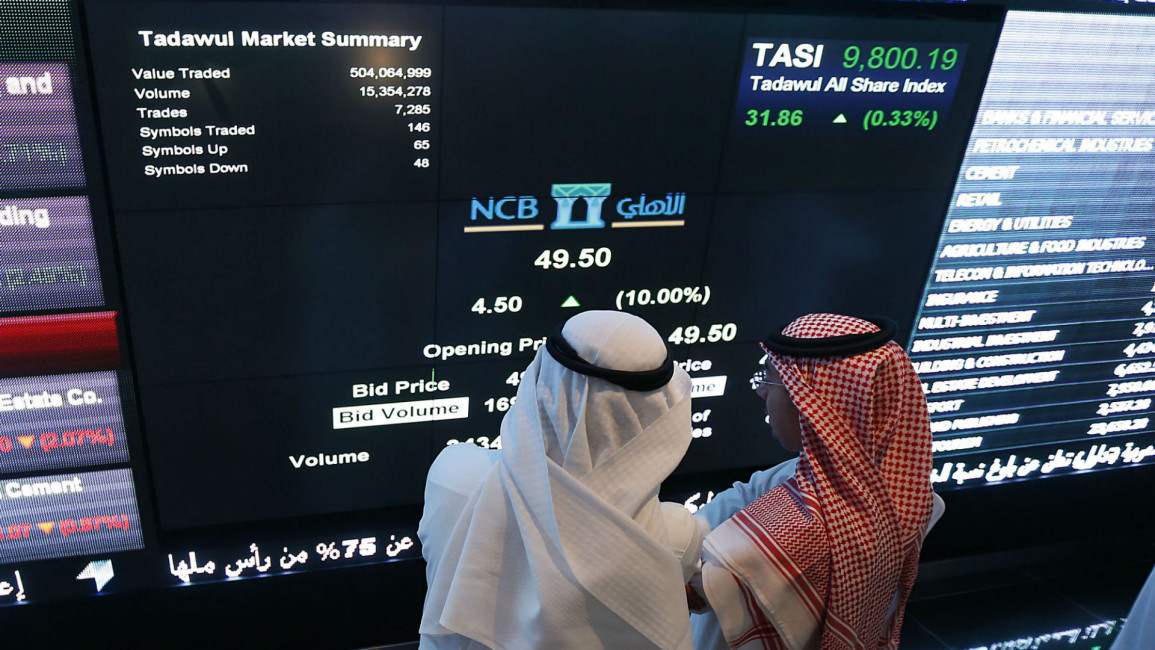Saudi public debt climbs back to 14% of GDP
Saudi Arabia's ministry of finance announced a total public debt of 342.4 billion riyals ($91 billion) on Wednesday night, as the country adjusts its economy in line with cheap oil prices.
The government's debt now stands at 14 percent of its annual gross domestic product (GDP) – currently around 2,300 billion riyals – as the government borrows more money to offset lower revenues from the sale of oil.
"Saudi has always signalled that it would issue debt in order to deal with the fallout from oil prices," Jason Tuvey, an economist at Capital Economics, told The New Arab.
"They played it down in the boom years – with the debt to GDP ratio reaching 1.6 percent in 2014 – but now they've started to issue debt in order to finance their budget deficits."
High oil prices over the last decade had increased Saudi government revenues, but economists are now projecting that oil prices will remain at around $50 a barrel – around half the price compared to two years ago.
This decreased government income has led to a budget shortfall of around 16 percent of GDP, which the government has had to patch up with increased borrowing.
Another avenue of income has been to issue more treasury bonds, a means of financing government spending programmes.
According to Argaam, a Saudi economic analysis firm, treasury bonds have increased by around 89.5 billion riyals over 2016 and will continue to grow by approximately 2.7 billion riyals a month.
Saudi Arabia announced that it would cut oil production by 486,000 barrels per day at the official OPEC meeting in Vienna on Wednesday.
Riyadh has been trying to raise non-oil related revenues and decrease its dependency on oil, in line with its economic project "Saudi Vision 2030".
A member of the Shura Council told reporters on Sunday that the country would begin a new nationalisation plan that would create a million new jobs and decrease imports in the country.
A large number of wage freezes have been seen across the country as ministers try to decrease a general economic dependence on the state.
It has been reported that around there are two times as many Saudis employed in the public sector as in private companies.


